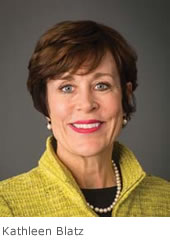Exploring Slavery, Past and Present: Robina Foundation supports Gilder Lehrman Center
“Slavery is one of the most pressing societal problems of our time,” said Genevieve LeBaron, the Human Trafficking and Modern Day Slavery Fellow at the Gilder Lehrman Center for the Study of Slavery, Resistance, and Abolition. “Many economists and political scientists had hypothesized that capitalism would eradicate forced labor. Instead, slavery is a rapidly growing concern and one that we must urgently address.”
According to the International Labour Organization, nearly 21 million people worldwide are victims of contemporary slavery: women and girls forced into prostitution, migrants coerced into debt bondage, and workers ensnared by sweatshops. Forced labor generates $150 billion in illegal profits annually.
Scholars at the Gilder Lehrman Center, a part of the Whitney and Betty MacMillan Center for International and Area Studies at Yale, are investigating why human exploitation remains so resilient in the global economy.
CONTEMPORARY SCHOLARSHIP, PUBLIC OUTREACH
Founded in 1998 through gifts from Richard Gilder ’54 and Lewis Lehrman ’60, the Gilder Lehrman Center is led by David Blight, Class of 1954 Professor of American History. The center promotes dialogue among scholars and public historians on the role of slavery in the development of the modern world. It disseminates findings through publications, educational out reach, and programs for both academic audiences and the public.
A generous grant from the Robina Foundation will advance this work in two key areas: contemporary slavery scholarship and public outreach programs related to the histories of slavery and abolition.
“Understanding the past helps us to grasp the reality of slavery today, including how we got to this place and what we might do about it,” Blight said. “I am grateful to the Robina Foundation for this contribution that enables us to expand the reach and scope of our programs.”
A longtime benefactor of Yale, the Robina Foundation endowed the Binger Center for New Theatre in the School of Drama and has supported the Robina Human Rights Fellowship Initiative at Yale Law School since 2008.
 ILLUMINATING MODERN SLAVERY
ILLUMINATING MODERN SLAVERY
The holder of an existing teaching fellowship, LeBaron studies the prevalence of forced labor in the global supply chains of big-brand companies—research that has evaded the best efforts of NGOs and activists. “Modern slavery is a nascent area of scholarship,” she said, “in part because the required field work is dangerous. The Gilder Lehrman Center is a preeminent institution, and I am thankful that David Blight is leveraging its reputation to deepen understanding of this international problem.”
The Robina grant will create an additional fellowship, helping to expose why human exploitation continues to thrive, spearheading new policies to combat abuse, and aiding victims.
“A multitude of stakeholders are working to address problems of modern-day slavery and human tra∞cking—NGOs, research scholars, officials of governments, and multinational organizations,” said Kathleen Blatz, chair of the board of the Robina Foundation. “As these groups come together to develop strategies, we hope the Gilder Lehrman Center can help inspire and inform today’s strategies with the important historical perspective. We are especially excited by that potential.”
EXPANDED EDUCATIONAL PROGRAMS
The Gilder Lehrman Center is renowned for educational programs that connect academia with the general public. In partnership with the Smithsonian National Museum of African American History and Culture, the center hosts the annual Yale Public History Institute, exploring ways to share African American history and culture with a wide audience. A portion of the Robina grant will help fund the institute for an additional four years.
The Robina grant will also support training opportunities for primary- and secondary- school teachers. Over the next three years, workshops on slavery, race, and genocide will be held in South Africa, Rwanda, and New Haven for approximately ninety teachers. And thirty New Haven-area school teachers will participate in monthly workshops hosted by the center, each led by a major historian.